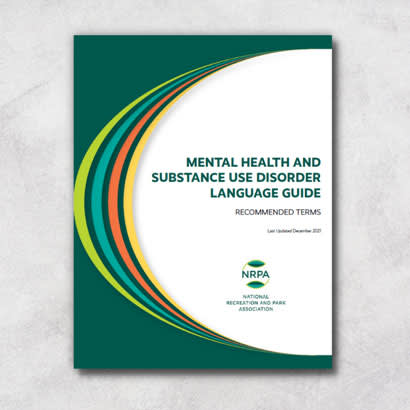
Content Warning: Please be advised, this blog post contains sensitive information and references to traumatic events.
Precedented Times for Focusing on Mental Health
On December 7, 2021, the United States Surgeon General issued an advisory on the mental health challenges experienced by young people. The advisory reports that in 2019, one in three high school students and half of female students reported persistent feelings of sadness or hopelessness, an overall increase of 40 percent from 2009. Since the coronavirus (COVID-19) pandemic began in 2020, the rates of youth experiencing mental health challenges have increased. As of June 2021, it is estimated that more than 140,000 children in the United States had lost a parent or grandparent caregiver to COVID-19. Depressive and anxiety symptoms for youth globally doubled during the pandemic.1 Emergency department visits in the United States for suspected suicide attempts were 51 percent higher for adolescent girls and 4 percent higher for adolescent boys in 2021 than in 2019.2 The Surgeon General states that “coming out of the COVID-19 pandemic, we have an unprecedented opportunity as a country to rebuild in a way that refocuses our identity and common values, puts people first, and strengthens our connections to each other.”
While COVID-19 is undeniably influencing the mental health of youth and adults, it is not the only epidemic impacting the health and well-being of our communities. In 2020, the whole nation bore witness to footage of George Floyd dying at the hands of a white police officer in Minneapolis, Minnesota, while other police officers and bystanders looked on. In the weeks that followed, feelings of anger and sadness increased in unprecedented levels for the U.S. population, and were more pronounced for Black community members, nearly half of who reported these emotions.3 Increased coverage of institutional violence against Black, Native American, Asian American, and Latino people, and general gun violence is more accessible to younger generations than any generation prior. Indirect exposure to police killings of Black people has demonstrated adverse effects on the mental health of Black people.4 Research on the community impact of state-sanctioned violence is limited but research on discrimination, and national community outcry, support the negative mental health effects of violence against communities of color.
A Mental Health and Substance Use Disorder Language Guide
Mental health conditions are also inextricably linked with substance use disorder. Statistics from the National Institute on Drug Abuse show that patients experiencing mood-related mental health disorders or anxiety are twice as likely to also experience a substance use disorder (SUD). Mental health and substance use disorders are highly prevalent, and as reported by the Surgeon General, are only anticipated to increase in significance. While these statistics are upsetting, the growing calls for action are promising. Park and recreation professionals play a role in helping to build and advance solutions to support community members.
In support of park and recreation professionals to address, communicate, and effectively serve all individuals experiencing mental health and substance use disorders, NRPA has developed the Mental Health and Substance Use Disorder Language Guide. The language guide was developed out of a need directly expressed by park and recreation professionals for a resource that provides language guidance and creates a shared narrative for all agencies to discuss mental health and substance use with respect and compassion. Since language is ever-evolving, this guide represents the first edition. With your help, it can be a living and ever-improving reference to support the field in serving their communities. Per the surgeon general’s advisory, we hope this resource can serve the field in this time of need.
The Role of Parks and Recreation
The Mental Health and Substance Use Disorder Language Guide focuses on the role that park and recreation professionals play as trusted community leaders, and their responsibility to practice and reinforce non-stigmatizing language to ensure all people are treated with respect and compassion. This resource explains the harmful impact of stigmatizing language, provides key guidelines for how to talk about mental illness and SUD, and provides a chart of language substitutions to replace common stigmatizing terms with respectful language. Agencies are encouraged to use the guide as a starting ground for addressing stigma within their internal organization and when communicating with external audiences, while beginning to explore more intentional ways to better serve individuals with mental health and substance use disorders. NRPA also provides an abridged version of the resource that is a one-page document to share, display, and have on hand for convenient reference.
As essential workers, supporting our nation’s most vulnerable communities through every epidemic, we hope this guide can support the field of parks and recreation to nurture the mental, physical and emotional health of their communities.
Liliana Ruiz Fischer (she/her/ella) is NRPA's health program specialist.
1. United States. Public Health Service. Office of the Surgeon General. (2021). Protecting Youth Mental Health. U.S. Department of Health and Human Services, Public Health Service, Office of the Surgeon General.
2. United States. Public Health Service. Office of the Surgeon General. (2021). Protecting Youth Mental Health. U.S. Department of Health and Human Services, Public Health Service, Office of the Surgeon General.
3. Eichstaedt, J. C., Sherman, G. T., Giorgi, S., Roberts, S. O., Reynolds, M. E., Ungar, L. H., & Guntuku, S. C. (2021). The emotional and mental health impact of the murder of George Floyd on the US population. Proceedings of the National Academy of Sciences, 118(39).
4. Bor, J., Venkataramani, A. S., Williams, D. R., & Tsai, A. C. (2018). Police killings and their spillover effects on the mental health of black Americans: a population-based, quasi-experimental study. The Lancet, 392(10144), 302-310.

